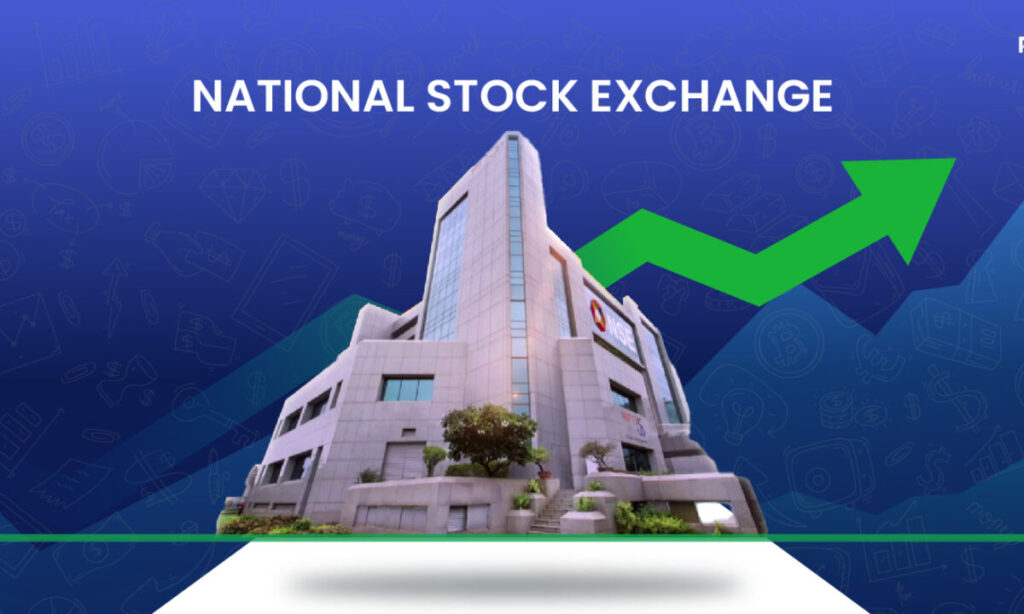A stock exchange, securities exchange, or bourse is an exchange where stockbrokers and traders can buy and sell securities, such as shares of stock, bonds and other financial instruments. Stock exchanges may also provide facilities for the issue and redemption of such securities and instruments and capital events including the payment of income and dividends.
Studying Stock exchange will be helpful for UPSC IAS Exam preparation. Mains GS paper-3 Indian Economy.
Table of Content
- What is Stock Exchange?
- What is the purpose of the stock exchange?
- History of stock exchanges
- Types of Share markets
- How do stock exchanges work?
- Who Regulates Stock Markets in India?
- Role of stock exchanges in the economy
- Benefits of Listing with Stock Exchange
- Benefits of investing in stocks through a stock exchange
- Risk of investing in stocks through a stock exchange
- Social Stock Exchange
- Conclusion
- Frequently asked questions (FAQs)
What is Stock Exchange?
- Stock Exchange market facilitates the transaction between traders of financial instruments and targeted buyers, hence it is a vital component of a stock market.
- It is a platform where buyers and sellers come together to trade financial tools during specific hours of any business day while adhering to SEBI’s well-defined guidelines.
- The buyers and sellers could be individuals, investors, businesses, financial institutions, other entities, or governments.
- The laws of supply and demand determine the commodity’s price.
- However, only those companies who are listed in a stock exchange are allowed to trade in it.
- Stocks which are not listed on a reputed stock exchange can still be traded in an ‘Over The Counter Market’.
What is the purpose of the stock exchange?
- All The stock exchange is the secondary market, meaning that the transactions do not occur directly with the said company.
- Instead, they occur with the investors who bought the shares during the IPO in the primary market.
History of stock exchanges
- In India, the first organised stock exchange was the ‘Bombay Stock Exchange’ (BSE) founded in 1875 in Mumbai (then Bombay).
- The organisation stands tall as the oldest stock exchange in Asia.
- The ‘National Stock Exchange’ (NSE) and the ‘Over-the-Counter Exchange of India’ (OICEI) were launched in 1992 and 1990, respectively, to ensure safe stock trading across India and eliminate the monopolistic impact of the Bombay Stock exchange in the Indian stock market.
- The NSE and OICEI are in Mumbai.
- Currently, there are twenty-three stock exchanges in India. Out of the total, BSE and NSE are national stock exchanges, while the remaining twenty-one is regional stock exchanges.
Types of Share markets
Primary share market:
- This is where companies or businesses register themselves and list for the first time.
- Companies enter the primary share market to raise funds by offering their stocks to the general public.
- When a company lists itself in the primary share market and offers to sell its shares for the first time, it is known as Initial Public Offering (IPO).
- Shares are a physical representation of a small value of the company, and owning the shares means that you are a part-owner of the company in the proportion of the shares you hold.
Secondary share market:
- After the company lists in the primary market, the actual trading of a company’s shares occurs in the secondary share market.
- After a company’s shares are listed on a stock exchange, investors can trade, i.e., sell or purchase the shares through a broker.
- In the present digital age, trader can easily open a Demat Account and a Trading Account, following which trader can effectively trade in stock markets via broking platforms.
How do stock exchanges work?
- When a company wants to raise capital, it offers its shares to the public.
- Shares are parts of the company which an investor can buy and own a small percentage of the company depending on the value of the share and the number of shares they buy.
- The company offers its shares through an IPO – Initial Public Offering.
- All this happens in the ‘Primary Market’.
- After the company floats its shares in the primary market, those who bought them in the primary market can trade or sell them in the ‘Secondary market.’
- The stock market or stock exchange is the secondary market.
- The stocks or shares of a company are bought or sold by traders to earn a profit.
- The price of the shares keeps fluctuating depending on the factors like the company’s profit, business performance, and the market sentiment about that company.
- Accordingly, shares are bought or sold depending on their perceived profitability.
- Millions of investors are making multiple transactions simultaneously on the stock market.
- hence, there is a change in the share price every minute.
- All these transactions occur electronically on the portal provided by a broker.
- A broker acts as a middleman for the parties involved.
- They carry out the requests of the buyers and sellers and later settle the trade for a commission or a fee.
Who Regulates Stock Markets in India?
- The Securities and Exchange Board of India (SEBI) regulates the stock market, the stock exchanges and the Depositories Participants in India.
- It was constituted in 1992 under the SEBI Act.
- Along with the overall administrative control of stock markets, SEBI is also entrusted with the role of conducting inspections and formulating rules for the transparent functioning of the stock markets.
Role of stock exchanges in the economy
Encourages business growth:
- Stock exchanges offer companies a fair chance to raise capital from the public.
- The funds pooled through Initial Public Offerings (IPOs) help companies to promote business expansion globally.
- Firms can list their shares on a stock exchange and request investments from people against company shares.
Facilitates safe investing:
- A stock exchange offers a robust infrastructure for stock investors across India.
- The platform allows traders to invest seamlessly in some of the biggest companies in the world.
- These centralised exchanges ensure safe and transparent trading for investors, where they can keep track of their stocks, profits, and market patterns.
Surge in investors:
- Stock investments carry risks forcompanies and investors.
- The Securities and Exchange Board of India governs the stock market and offers safety rights to investors.
- Stock exchanges work in sync with SEBI guidelines to provide complete protection to people willing to invest in stocks.
- The regulated framework encourages participation from different classes.
Benefits of Listing with Stock Exchange
Raise capital:
- The main reason for stock listing on stock exchanges is to raise funds from the public.
- Companies can issue new share capital to support their growth and expansion.
- Share subscription provides sufficient fund flow to corporations to meet their financial needs.
Increased marketability and liquidity:
- Stock investments carry risk due to market fluctuations.
- However, many consider the shares listed on a stock exchange a reliable investment.
- These platforms are a hotbed for trading securities as they offer investors a safe, cost-effective, and easy-to-use infrastructure.
- The shares of a company become more marketable when listed on trusted stock exchanges.
- Investors can liquidate their shares as and when required.
Increased brand presence:
- Listing of shares on stock exchanges creates brand awareness for companies.
- With IPOs, companies can capture the attention of ordinary people.
- Stock listing lets companies grab the public’s attention without extra promotional investments.
Benefits of investing in stocks through a stock exchange
- The Securities and Exchange Board of India regulates the stock exchanges in India.
- The watchdog keeps an eye on the working of stock markets to ensure the safety of investors.
- Stock exchanges offer a diverse range of stock options of native and multinational companies to investors.
- These platforms help investors to build a strong portfolio featuring low-risk to high-risk investments.
- Stock exchanges give investors access to an economical, transparent, and safe trading infrastructure.
- Through stock exchanges, investors can liquidate their shares at any time based on their convenience.
- When investing via stock exchanges, investors do not have to worry about the theft of their funds.
Risk of investing in stocks through a stock exchange
- The share market is highly volatile as the price changes vary with government policies, company policies, budgets, etc.
- Stock exchange investors also face the repercussions of the rolling effect, where small investors follow the lead of big investors blindly.
- Investment in stocks via stock exchanges requires the assistance of brokers who charge exorbitant fees for their guidance.
Social Stock Exchange
- Social Stock Exchange (SSE) is a segment of the existing Stock Exchange, that can help social enterprises raise funds from the public through the stock exchange mechanism.
- Social Stock Exchange identifies social enterprises as the ones engaged in creating positive impact in the society.
- It aims to provide an alternative fund-raising instrument.
- Social enterprises raise funds through issuance of instruments like Zero Coupon Zero Principal (ZCZP) or Donations through mutual fund schemes or other means specified by Sebi.
- In simple terms, the social stock exchange will act as a medium between social enterprises and fund providers.
- Investors can choose entities that are creating measurable social impact and provide funds only to those organisations.
Conclusion:
Stock exchanges are known for their easy-to-use, secure, and transparent working mechanisms focused on investors. These platforms serve as a one-stop solution offering access to shares of various Indian and multinational companies. Investment through stock exchanges allows investors to work in a systematic cluster, understand the market patterns well, and thus expand their earnings. Firms list their shares on stock exchanges to raise capital for growth and expansion. These SEBI-regulated entities are a safe medium to fetch passive income through intelligent investments. However, investors must invest in trusted firms to ensure profitable income
| Other Articles in Economy | |
| Bull vs. Bear Market | Capitalism |
| Masala Bonds | Startup Ecosystem |
| Difference between Direct Tax and Indirect Tax | Foreign Exchange Rate |
FAQs Frequently Asked Questions
What do you mean by stock exchange?
A stock exchange is a marketplace where securities, such as stocks and bonds, are bought and sold.
What are the two types of stock exchange?
Primary market & Secondary market. Primary market creates securities and acts as a platform where firms float their new stock options and bonds for the general public to acquire. Secondary market, also known as the stock market, acts as a trading platform for investors.



